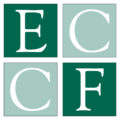Seven Questions to Get the Feedback You Need
Feedback tells us how our words and actions impact others. Feedback shows us the unintended consequences of our behavior. If we are committed to increasing our leadership effectiveness, feedback is essential to our growth and development.
Recently, I coached a client who gained an entirely new perspective of her own leadership effectiveness as a result of obtaining feedback. My client, whom I’ll call Rachel, was having trouble identifying her leadership style and had concerns that she might not have the requisite skill set to take her rapidly growing organization to the next level.
During the coaching engagement, we had her do a personality type assessment and a strength-finder assessment. Armed with a better understanding of her true gifts, she decided to stop guessing at the impact of her leadership style on others, and to ask outright for feedback.
Rachel scheduled meetings with key stake-holders, including direct reports, and we co-created a list of questions for her to ask.
The Questions:
- What are three words that you would use to describe me?
- What do you see as my greatest strength?
- When would you most want me on your team?
- When would you least want me on your team?
- How do I add value to you or your work? (For direct reports – How is my leadership supporting you in your work here?)
- What do you want me to keep doing?
- What do you wish I would stop doing?
Rachel’s questions were designed to elicit truth. She avoided the general “How am I doing?” question and asked specific questions that were difficult to evade.
Most people feel uncomfortable giving feedback that they perceive as negative or critical, even when we ask for it. Rachel’s questions provided ample opportunity for feedback-givers to share positive feedback and made them more comfortable sharing honest constructive feedback.
If they still showed hesitation, she was able to egg them along. “You gave me a great example of when you would want me on your team. Surely, there are different situations when there are other people who would simply be more effective.”
The Results. Obtaining feedback was game-changing for Rachel.
Previously, she had been on her own self-determined development path based on her perceptions of her leadership effectiveness. In fact, the feedback that Rachel solicited told her that she was focusing on the wrong things. With the knowledge of how she impacted others, she finally felt free to stop trying to develop skills that did not come naturally to her anyway. The gifts that she already had were tremendously valuable to the organization and, with a shift in focus, she was better able to seek ways to apply those gifts.
Feedback is imperative to growth and development. It is data. Without it, we are forced to decide our development path with incomplete information.



[…] One can obtain feedback using an informal approach of simply asking questions (to learn how, click here), or utilizing a formal 360-degree feedback survey instrument. Although many leaders don’t […]